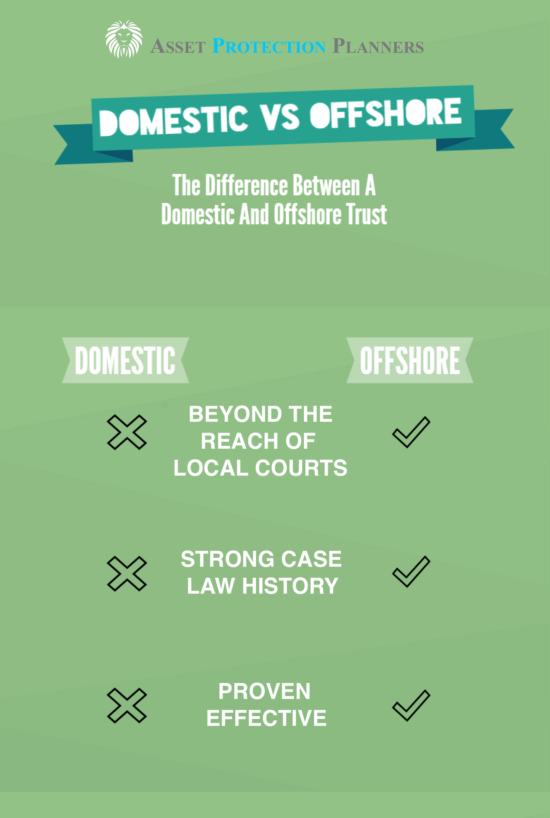
What are some ways to protect your assets from lawsuits? Every businessperson and entrepreneur expects that hard work, creativity, and boldness to have a payoff. When applied with perseverance and consistency these efforts should produce a successful and lucrative career in any type of enterprise.
Yet, hard-earned wealth and financial security can disappear in an instant. It only takes a single mistake, such as a car accident, workplace injury. Perhaps it is an act of negligence on the part of a business owner or employee. Such an incident can place this wealth in immediate jeopardy. On behalf of an aggressive plaintiff, courts may be quick to snatch the personal assets of a business owner and the business itself. This includes cash, real estate, and other property.
For these reasons, it is essential for any business owner to understand the various methods of protecting financial assets. This article will provide an overview of some various time-tested asset protection strategies. We will show you how to secure your personal wealth and business assets from lawsuits and seizure.
Related content: 5 Ways to Protect Assets from Lawsuits

Sole Proprietorship & Partnership Disadvantages
Entrepreneurs seeking to begin a successful business must establish a basic legal structure for their enterprise. Because of their simplicity, minimal legal restrictions, and ease of tax filing and general paperwork, Sole Proprietorships and General Partnerships are often attractive options for small businesses.
Both of these basic legal structures provide business owners with convenience and simplicity. But they offer virtually no protection against litigation. Lethally, with a sole proprietor or a general partner the owner and business itself are one in the same. For this reason, both the assets of the business and personal assets of the business owner(s) are vulnerable. Personal and business assets are subject to seizure from business-related lawsuits. Thus, sole proprietorships and general partnerships do not provide the necessary protections for businesses. Owners of these business often squander money that they could have used to expand employment, own property, and increase income. Instead, it flies out the door to pay for legal fees, settlements and judgments.
LLCs vs. Corporations
A properly established and maintained Limited Liability Company and Corporation can both provide significant protection of financial assets when someone sues the business. These two business structures do have notable differences regarding protection from a business lawsuit. However, it is important to understand and compare these differences before choosing one structure or the other for your business.
Business Owners
Any business owner needs to defend both his or her personal and business assets from litigation. One way to protect assets from lawsuits is to operate the business as a corporation or an LLC, specific legal statutes prevent a business owner from being personally liable. Debts incurred by the business are separate from personal debts. For example, if a court order legally requires a LLC or Corporation to pay legal damages from a lawsuit, its owner is generally not obligated. They do not need to fulfill these financial obligations with their personal wealth, real estate, or other financial assets.
Both the LLCs and Corporations are legal tools that protect the owner’s personal assets from financial liability incurred by their businesses. In addition, a legally savvy business owner must take personal liability into account. If a business owner personally incurs a legal financial obligation (such as damages demanded by a civil lawsuit) the assets contained in their business-stock, real estate, and other property may become vulnerable to seizure.

Asset Protection vs Lawsuit Protection
Most corporations provide little legal protection of business assets in a personal lawsuit. That is because the creditor can take the corporate shares. Thus, a judgment creditor can take shares in a corporation, thus the assets inside if the company’s owner incurs a personal legal financial obligation. That is, a corporation protects the owners when someone sues the company. But it does not protect the company when someone sues the the owners.
On the other hand LLCs can shield business assets from the business owner’s personally incurred financial obligations. So when someone sues a member of an LLC, the LLC statutes can shield the company and its assets. As of this writing, Nevada, Wyoming and Delaware give this protection to one-member LLCs. Other states may require there to be two or more LLC members in order to enjoy the asset protection the LLC provides.
Both LLCs and Corporations provide a much more robust defense of financial assets than more basic legal structures. Sole Proprietorships and General Partnerships don’t measure up. So, we can see that the LLC provides more asset protection than a corporation (protecting personal assets from business-incurred obligations and business assets from personally-incurred obligations). It is common to operate a business as a corporation and hold asset (even assets of the corporate business) in separate LLCs. One LLC per piece of real estate keeps the liability incurred on one property from affecting the others.

Doing it Right
Regardless of which option a business owner chooses, it is essential to remember that the owners need to properly maintain their Corporations and LLCs. Negligence, disorganization, and lack of proper legal maintenance can convince a court to disregard a business as a separate legal entity. Thus, failing to follow simple formalities can override whatever legal protections the legal structure of the business provides. So be sure that an experience professional forms the company so you have a properly established entity. A professional registered agent can send you annual reminders to help make sure you operate it properly. For example, hold annual meetings, pay the annual government fees, and do not pay personal expenses with company money.
Asset Protection Trusts
While a wisely chosen legal structure for a business can provide excellent protection of its owner’s financial assets, many business owners may desire to seek further protection. Whether or not he or she owns a business, any individual with significant financial liability (such as a physician) can safeguard these assets by placing them in an asset protection trust. In this case, a trustee legally shields the assets on behalf of the trust’s settlor. The trust places a barrier of protection between the trust settlor and the trust assets. Thus, it shields the assets from legal liability and seizure.
Trusts
Various forms of trusts exist, and it is essential to understand the various options thoroughly before making a decision.
To protect assets, the most common trusts belong in one of two categories: domestic and offshore. Sometimes, would-be settlors feel more comfortable establishing their assets in a trust on U.S. soil. These domestic trusts are available in multiple U.S. states. These are states which have the enacted statutory legal protection for grantor trusts, such as Nevada. Nevada also happens to have no state income tax on individuals or corporations.

Domestic vs. Offshore Trusts
Despite the relative convenience of domestic trusts, however, they still remain vulnerable to seizure by U.S. courts, simply because they remain within the judge’s jurisdiction. If a creditor can provide clear evidence of intent to defraud or hinder a creditor of a rightfully obtained judgment on the part the trust’s settlor, for example, the courts can order the seizure of trust assets. This is where offshore trusts truly shine. A successfully established offshore trust (especially one established in a country with strong privacy laws, such as the Cook Islands) is outside of U.S. courts’ legal jurisdiction. Thus, is not vulnerable to search and seizure in the case of a lawsuit. Case law shows that these trusts provide virtually bulletproof asset protection.

Asset Protection Conclusion
In any case, it is essential for important seeking to establish a trust, incorporate a company, or form an LLC to seek experienced support. Setting up a company or trust is not enough. It has to be done right. Moreover, protecting one’s hard-earned financial assets is an essential and complicated task. It must be completed with great caution, dutiful research, and sound legal guidance. After all, this is your money we are talking about.
By Walker Bailey



